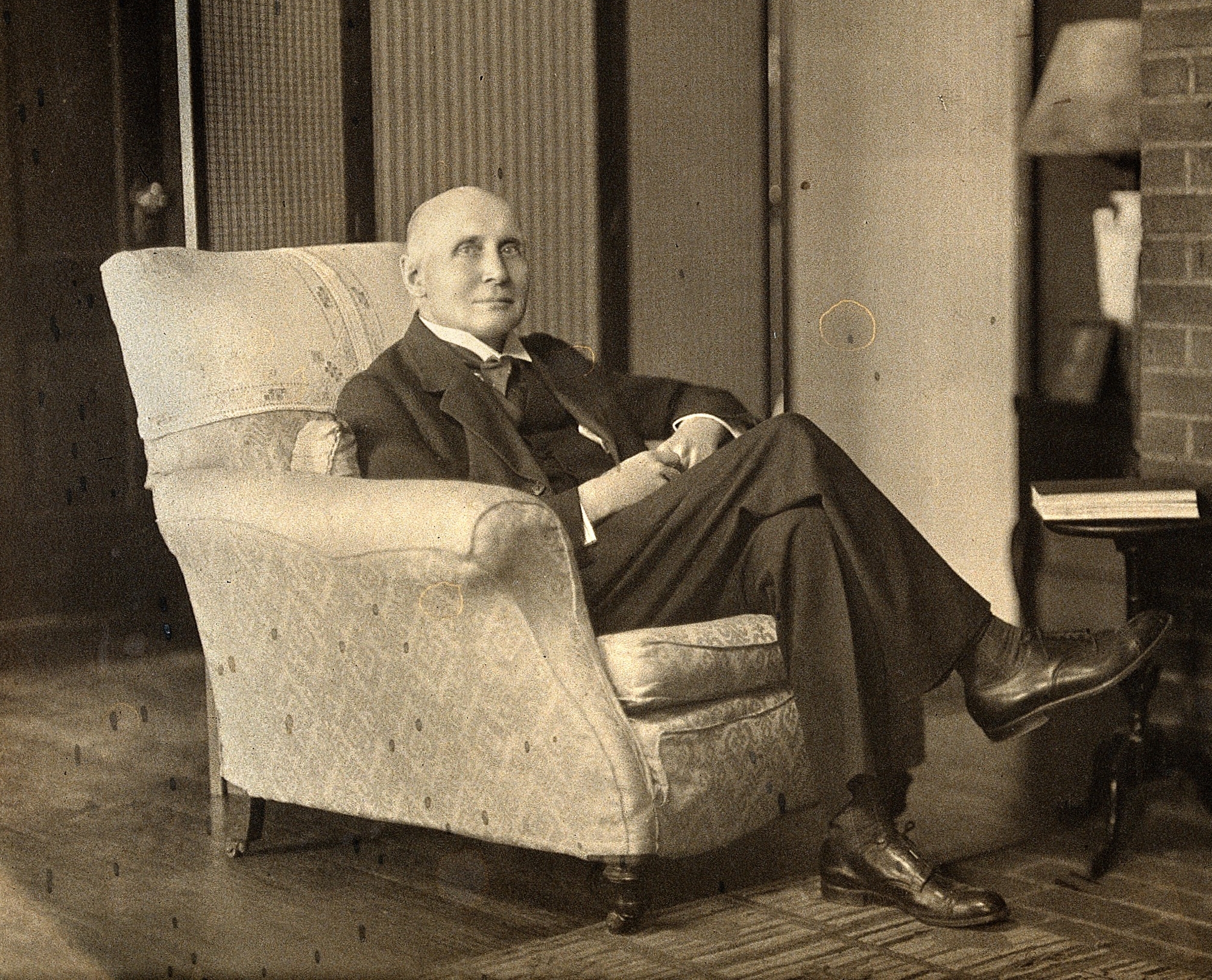Frases célebres de Alfred North Whitehead
Alfred North Whitehead Frases y Citas
Alfred North Whitehead: Frases en inglés
Pt. V, ch. 1, sec. 1.
1920s, Process and Reality: An Essay in Cosmology (1929)
Contexto: There is a greatness in the lives of those who build up religious systems, a greatness in action, in idea and in self-subordination, embodied in instance after instance through centuries of growth. There is a greatness in the rebels who destroy such systems: they are the Titans who storm heaven, armed with passionate sincerity. It may be that the revolt is the mere assertion by youth of its right to its proper brilliance, to that final good of immediate joy. Philosophy may not neglect the multifariousness of the world — the fairies dance, and Christ is nailed to the cross.
“He gave them speech, and they became souls”
Modes of Thought (1938).
1930s
Contexto: The mentality of mankind and the language of mankind created each other. If we like to assume the rise of language as a given fact, then it is not going too far to say that the souls of men are the gift from language to mankind. The account of the sixth day should be written: He gave them speech, and they became souls.
1920s, The Aims of Education (1929)
Contexto: The essence of education is that it be religious. Pray, what is religious education? A religious education is an education which inculcates duty and reverence. Duty arises from our potential control over the course of events. Where attainable knowledge could have changed the issue, ignorance has the guilt of vice. And the foundation of reverence is this perception, that the present holds within itself the complete sum of existence, backwards and forwards, that whole amplitude of time, which is eternity.
“The task of philosophy is to recover the totality obscured by the selection.”
Pt. I, ch. 1, sec. 6.
1920s, Process and Reality: An Essay in Cosmology (1929)
Contexto: Philosophy is the self-correction by consciousness of its own initial excess of subjectivity. Each actual occasion contributes to the circumstances of its origin additional formative elements deepening its own peculiar individuality. Consciousness is only the last and greatest of such elements by which the selective character of the individual obscures the external totality from which it originates and which it embodies. An actual individual, of such higher grade, has truck with the totality of things by reason of its sheer actuality; but it has attained its individual depth of being by a selective emphasis limited to its own purposes. The task of philosophy is to recover the totality obscured by the selection.
Fuente: 1910s, An Introduction to Mathematics (1911), ch. 5. <!-- pp. 41-42 -->
Contexto: It is a profoundly erroneous truism, repeated by all copy-books and by eminent people when they are making speeches, that we should cultivate the habit of thinking of what we are doing. The precise opposite is the case. Civilization advances by extending the number of important operations which we can perform without thinking about them. Operations of thought are like cavalry charges in a battle — they are strictly limited in number, they require fresh horses, and must only be made at decisive moments.
"The Education of an Englishman" in The Atlantic Monthly, Vol. 138 (1926), p. 192.
1920s
Pt. II, ch. 1, sec. 1.
Fuente: 1920s, Process and Reality: An Essay in Cosmology (1929)
Prologue.
Attributed from posthumous publications, Dialogues of Alfred North Whitehead (1954)
“The human body is an instrument for the production of art in the life of the human soul.”
Fuente: 1930s, Adventures of Ideas (1933), p. 349.
Pt. V, ch. II, sec. V.
1920s, Process and Reality: An Essay in Cosmology (1929)
as cited in History, Humanity and Evolution (1989), p. 383.
1920s, Science and the Modern World (1925)
1920s, Science and the Modern World (1925)
Fuente: Attributed from posthumous publications, Dialogues of Alfred North Whitehead (1954), Ch. 29, June 10, 1943.
1920s, The Aims of Education (1929)
1920s, Science and the Modern World (1925)
Fuente: Attributed from posthumous publications, Dialogues of Alfred North Whitehead (1954), p. 135; Ch. 17, December 15, 1939.
“Every human being is the natural guardian of his own importance.”
Fuente: 1920s, Science and the Modern World (1925), Ch. 9: "Science and Philosophy"
Pt. I, ch. 2, sec. 2.
1920s, Process and Reality: An Essay in Cosmology (1929)
the corruption of the best is the worst
1920s, The Aims of Education (1929)
1920s, The Aims of Education (1929)
1920s, Science and the Modern World (1925)
“The term many presupposes the term one, and the term one presupposes the term many.”
Pt. I, ch. 2, sec. 2.
1920s, Process and Reality: An Essay in Cosmology (1929)
“For the kingdom of heaven is with us today.”
1920s, Process and Reality: An Essay in Cosmology (1929)
“A culture is in its finest flower before it begins to analyze itself.”
Fuente: Attributed from posthumous publications, Dialogues of Alfred North Whitehead (1954), Ch. 22, August 17, 1941.
